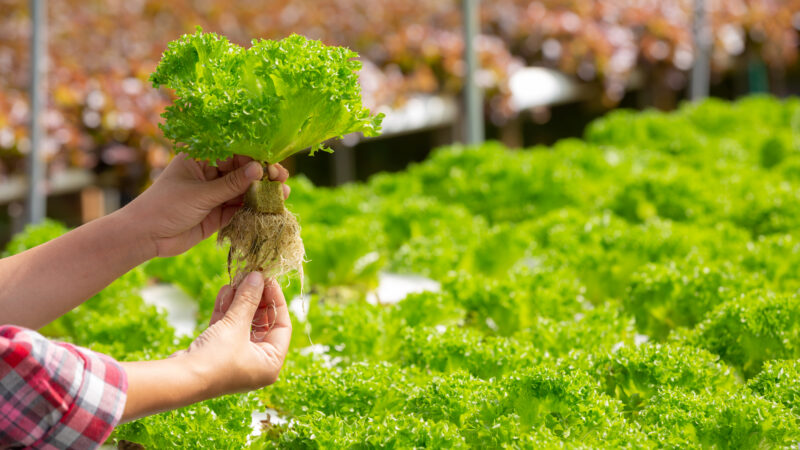NPK fertiliser is a decisive factor in modern agriculture and gardening. This type of fertilizer consists of three important nutrients: Nitrogen (N), Phosphorus (P) and Potassium (K). These nutrients play a crucial role in plant growth, development and health. In this article, we will explore everything you need to know about NPK fertilizer, from its composition to its uses and benefits.
Read more about fertilizer here: The best fertiliser
Table of contents
ToggleWhat is NPK fertilizer?
NPK fertiliser is a formulation of three primary nutrients essential for healthy plants. These nutrients are as follows:
- Nitrogen (N): This nutrient is essential for plant growth and the development of leaves and stems. It also helps build protein synthesis and improve the color of the plants.
- Phosphorus (P): Phosphorus plays a vital role in the development of strong roots, flowers and fruits. It is also important for energy transfer in the plant.
Potassium (K): Potassium contributes to the plant's overall health and resistance to disease. It strengthens cell structures and improves water absorption.
How to use NPK fertilizer
NPK fertilizers are available in different formulations that indicate the ratio of the three nutrients. This ratio is usually presented as NPK on the packaging. For example, the ratio 10-5-5 indicates that the fertilizer contains 10% nitrogen, 5% phosphorus and 5% potassium.
It is important to understand the nutritional needs of your plants before applying NPK fertilizers. This is best achieved through soil samples and tests. Overdosing of fertilizer can lead to an imbalance in the soil and potentially harm the plants.
Advantages of NPK fertilizer
The use of NPK fertilizers can result in a number of benefits for your plants and crops:
- Increased growth: The essential nutrients in NPK fertilizers promote healthy growing conditions, resulting in increased height and density of plants.
- Better development: Phosphorus and potassium contribute to the development of strong roots, flowers and fruits, improving both yield and quality.
- Resistance to stress: Plants that receive adequate amounts of potassium are better able to withstand stressors such as extreme temperatures and drought.
Choosing the right NPK fertilizer
Choosing the right NPK fertilizer is a crucial decision that should be made carefully to ensure optimal growth and health for your plants or crops. This choice depends largely on the specific needs of your green friends. Here are some important factors and considerations that should be taken into account:
- Soil pH level: The acidity of the soil, also known as the pH level, plays a decisive role in nutrient uptake. Certain plants thrive best in acidic soil conditions, while others prefer more alkaline conditions. By knowing the pH level of the soil, you can choose an NPK fertilizer that best suits the specific conditions and helps maintain a healthy pH balance.
- Species of the plant: Different plants have different nutritional needs. Some plants need more nitrogen to promote leaf and stem growth, while others require extra phosphorus and potassium to support flower and fruit formation. It is crucial to identify the specific plant species and its nutrient preferences.
- The growth phase: A plant's life cycle consists of different growth phases, each of which requires specific nutrients. In the early growth phase, nitrogen is essential to promote rapid leaf growth and the establishment of strong roots. Later in the growth phase, when flowers and fruits are formed, phosphorus and potassium are more essential. By adapting your NPK fertilizer to the current growth phase, you can maximize the plant's potential.
- Plant location: Where your plants are placed – indoors or outdoors, in a container or directly in the ground – can affect their nutrient needs. Plants in containers often lose nutrients more quickly and require more frequent fertilization. Soil conditions and exposure to sunlight also play a role in determining which NPK fertilizer is most appropriate.
- Environmental conditions: Climate, temperature and humidity in your area affect the plant's metabolism and nutritional needs. Plants in areas with intense sun and heat may have an increased need for potassium to withstand drought and heat stress.
- Objectives: Your purpose for growing the plants can also influence your choice of NPK fertilizer. If you want fast growth and density, a fertilizer with a higher nitrogen content may be appropriate. If you prioritize quality and production of flowers or fruits, a more balanced NPK formulation may be the way to go.
How to use NPK fertilizer correctly
Proper application of NPK fertilizer involves some steps:
- Read the label: Understand the relationship between the nutrients on the fertilizer package and the recommended amounts.
- Measure accurately: Use an accurate scale or measuring cup to make sure you apply the right amount of fertilizer.
- Spread evenly: Spread the fertilizer evenly over the soil around the plants to ensure uniform nutrition.
Water after application: Water the area liberally after applying fertilizer to help break down and transport the nutrients to the roots.
Conclusion
NPK fertilizer is an indispensable resource in agriculture and gardening. Its unique composition of nitrogen, phosphorus and potassium plays a vital role in promoting healthy growth, development and resilience in plants. By understanding the different aspects of NPK fertilizer, you can make well-informed decisions about how to best care for your plants and crops.
Frequently Asked Questions (FAQs)
NPK fertilizers contain essential nutrients: nitrogen (N), phosphorus (P) and potassium (K), which strengthen plant growth and health
Plan fertilizer carefully. Use nitrogen-rich NPK in early spring, balanced mix in late spring and phosphorus-potassium mix during flowering
Undoubtedly. NPK fertilizers supply essential nutrients, but correct dosage is essential to avoid damage to the environment.
NPK fertilizer is an important plant nutrient with nitrogen (N), phosphorus (P) and potassium (K) that promotes everything from root development to disease resistance.





